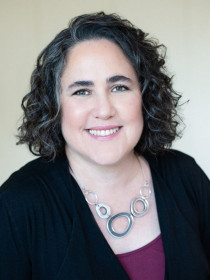Connect with Diana
About Diana
Foster is a demographer who uses quantitative models and analyses to evaluate the effectiveness of family planning policies and the effect of unintended pregnancy on women’s lives. She is currently leading the Turnaway Study, a nationwide longitudinal prospective study of the health and well-being of women who seek abortion, including both women who do and do not receive the abortion. Foster has also worked on the evaluation of the California State family planning program, Family PACT. This work demonstrated the effectiveness of the program in reducing the incidence of unintended pregnancy. She created a new methodology for estimating pregnancies averted based on a Markov model and a microsimulation to identify the cost-effectiveness of advance provision of emergency contraception. She also leads the Global Turnaway Study collaboration of scientists from five countries who study access to abortion care.
Contributions
No Jargon Podcast
In the News
Publications
Examines the association of women receiving or being denied a wanted abortion with their children’s health and well-being.
Demonstrates that women are denied abortion services in countries with legal abortion and that the reasons for which they were denied varied widely by country. Finds that in Colombia, 2% of women surveyed did not receive the abortions they were seeking; in South Africa, 45% of women did not receive abortions on the day they were seeking abortion services and in both Tunisia and Nepal, 26% of women were denied their wanted abortions.
Compares depression and anxiety among women who had abortions and women denied wanted abortions for up to 2 years after seeking abortion care. Concludes that women receiving abortions are not at higher risk of experiencing depression and anxiety.
Discusses the effect of abortion on women’s risk of experiencing post-traumatic stress four years after seeking abortion. Finds that women who receive abortions are no more likely than women denied wanted abortions to report post-traumatic stress and that most women attribute the stress symptoms they experience to violence or abuse or other factors in their lives.
Uses existing data to estimate the possible effect on unintended pregnancy of making oral contraceptives available over-the-counter. Finds that making the pill available over-the-counter (OTC) could result in a 7%-25% decrease in the number of unintended pregnancies and suggests that public health plans could reduce expenditures on reproductive healthcare by covering OTC oral contraceptives.
